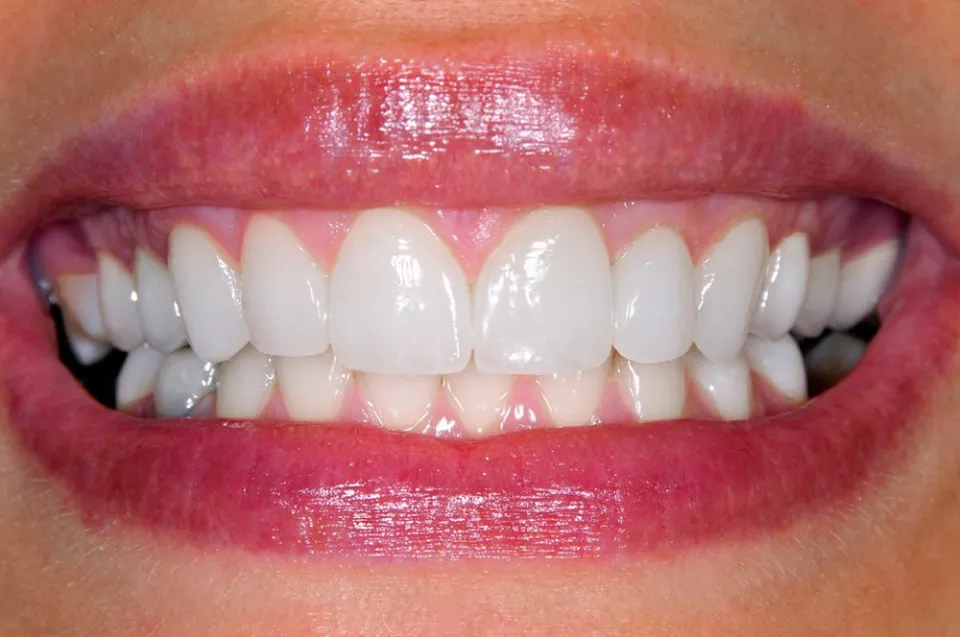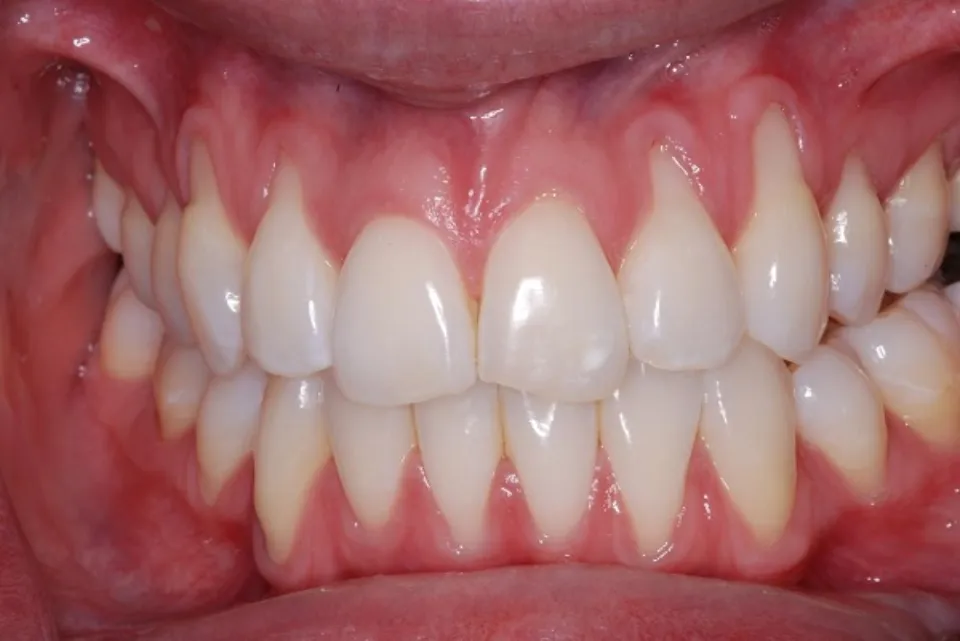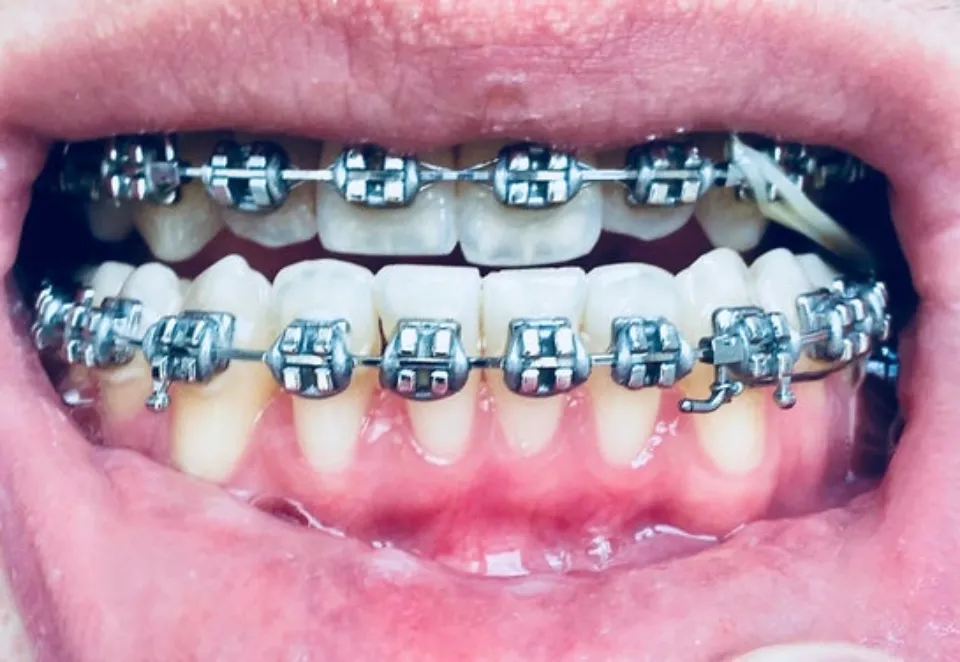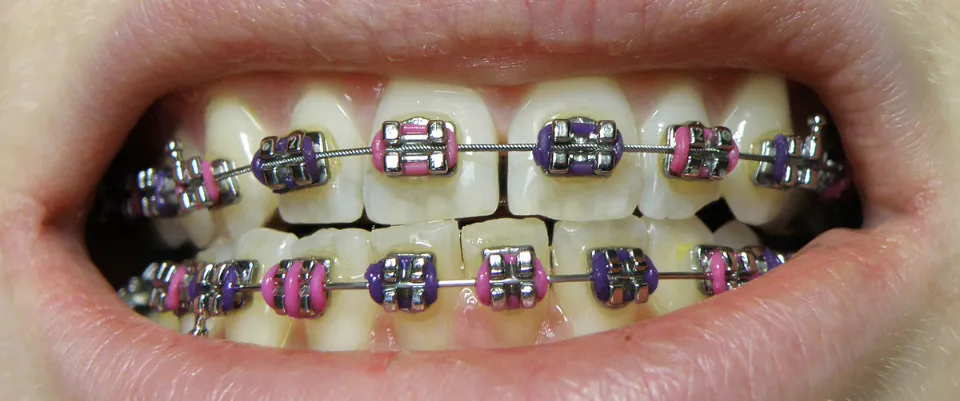
Can Braces Cause Gum Recession – What You Should Know
When the gums that surround your teeth recede, more of the tooth or even the tooth’s root is visible. This is known as gum recession.
We all experience some gum recession as we age. You may not even notice your gums receding because it typically happens very gradually.
Gum recession won’t occur just from wearing braces. Wearing braces makes it difficult to properly clean the teeth, and poor oral hygiene can lead to gum recession.
What is the Gum Recession?

A condition known as receding gums occurs when the gum tissue around the teeth pulls back or deteriorates, exposing more of the tooth. In this situation, the space that develops between the gum line and teeth provides a favorable environment for bacterial growth. Although orthodontic treatment may contribute to some predisposing factors, there is no conclusive evidence that it is the only factor responsible for receding gums. After all, before beginning orthodontic treatment, your orthodontist will first check to see if your gums are healthy.
The primary symptom of gum recession is tooth sensitivity. As a result, foods and drinks that are hot, cold, acidic, or spicy can cause increased sensitivity in your teeth. A dark line appears on the teeth along the gum line, and your teeth appear longer than they did previously. These are both significant signs.
Can Braces Cause Gum Recession?

Braces can both enhance and accentuate gum recession, improving both its appearance and its visibility.
Gum recession cannot be caused by braces alone. Nevertheless, how well you maintain your teeth throughout orthodontic treatment will matter.
To remove plaque, you must carefully brush the area around your braces and the gumline each day. On our teeth, a sticky, colorless film called plaque builds up. It contains millions of bacteria, and if it’s not removed it can cause tooth decay and gum disease.
While wearing braces, we advise brushing your teeth for four minutes, three times a day. Be gentle but thorough when brushing to prevent gum recesion from occurring.
Can I Have Braces If My Gums Have Receded?
The lower front teeth are particularly susceptible to gum recession. You are probably a candidate for braces if your gums are healthy.
We’ll keep a close eye on your gumline as your treatment progresses. Your teeth will be moved slowly and gently to lessen the chance of further recession.
Unfortunately, we are unable to promise that your recession won’t worsen. We can direct you to a periodontist specialist if this occurs.
If you have any active gum disease, this will need to be treated before we fit your braces.
Treatment for Gum Recession

Mild gum recession typically doesn’t require any special care. But you must watch your gums closely and brush your teeth gently. There are a few options available to you if you experience gum recession and require treatment. Find out which ones are most beneficial for you by asking your dentist.
- Composite restoration. These seal off tooth gaps and cover the root surface.
- Desensitizing agents and dentin bonding agents. The sensitivity of the exposed tooth root is lessened by these products. They treat nerve symptoms and ease the brushing of sensitive teeth.
- Removable gum veneers. These replace significant areas of receding gum tissue and are typically made of silicone or acrylic.
- Pink porcelain or composite. These fill in gaps or receding gums and are the same color as the gums. (Read More: Can Braces Fix Gaps in Teeth)
It’s important to remember that orthodontic treatment does not always result in gum recession if you are thinking about getting braces but have some hesitations about the possibility of this happening. Most of the time, a reputable orthodontist will ask about your history of gum recession and gum disease along with your family history. Your dentist will only proceed with the orthodontic treatment following a thorough dental examination and assessment, once you have been given the all-clear.
Tips for Preventing Gum Recession
- Brush gently – don’t scrub your teeth and gums
- Stop smoking – smokers have a higher risk of gum disease
- See your dentist for regular check-ups – especially during orthodontic treatment
- Avoid clenching or grinding your teeth – your dentist can recommend a mouthguard
- Avoid mouth piercings – they can irritate your gums and cause the recession
Conclusion
Prior to starting any orthodontic treatment, it’s crucial to make sure your teeth and gums are in the best possible health. If you already have gum problems, they might get worse while getting braces. Make an appointment with your orthodontist to discuss your options if you are currently wearing braces and fear you may be experiencing gum recession.
FAQs
Why Are My Gums Receding After Braces?
Constant compression forces placed on your mouth’s bone while wearing braces can cause inflammation, which may result in the bone’s disappearance. Many people will experience gum recession if the bone around their teeth recedes because the gums will follow the bone.
Do Braces Increase Gum Recession?
Braces can help straighten teeth and boost a person’s confidence so they can smile more, but they can also cause receding gums, which can result in problems with the mouth’s oral health.
How Do Dentists Fix Receding Gums?
We can perform a process known as a gum graft to treat receding gums. In this minor surgical procedure, healthy gum tissue is removed from another area of the mouth and attached to the area where the gums have receded to provide additional tissue to rebuild the gums.





Average Rating